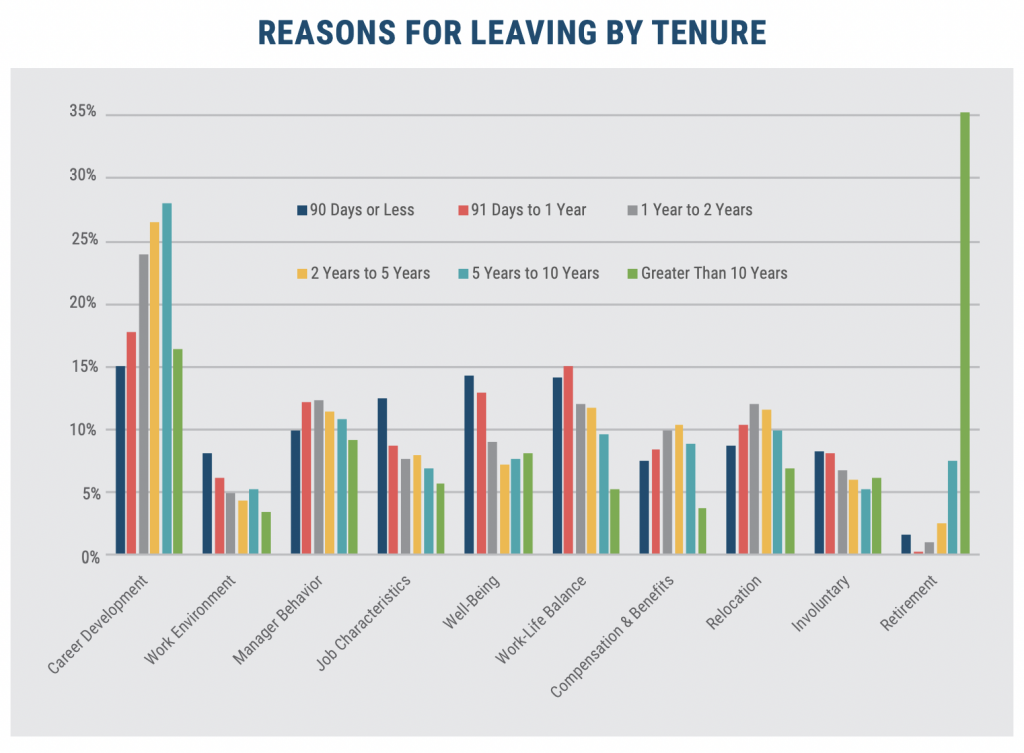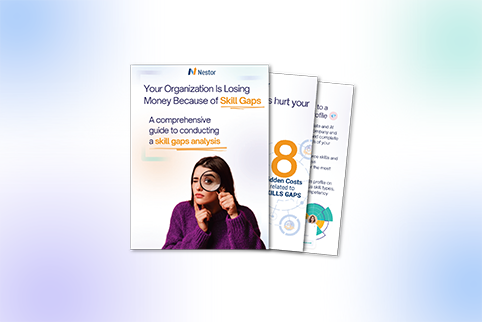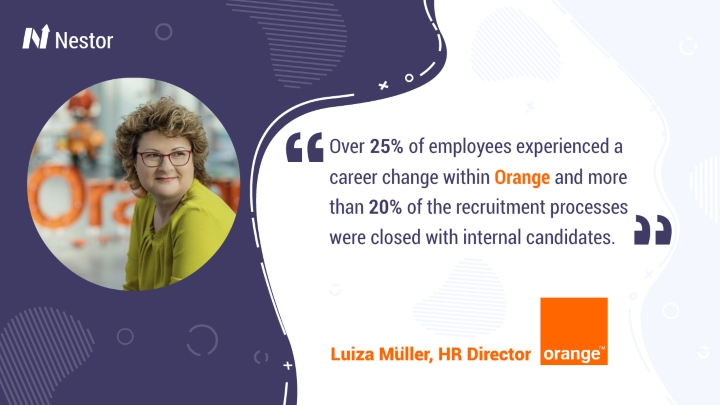
One of the most beautiful responsibilities of you as a people manager is to support your colleagues in their own growth and career development. Sometimes, it’s a challenging and uncomfortable process, but in the medium and long term, it pays off.
Therefore, the perks of growing your people are unlimited: from the trusting and meaningful relationship you are building with your colleague (we all remember with love and admiration that manager who took the time and effort to help us grow) to saving the company an immense cost of turnover.
Turnover cost and career development
According to the Work Institute 2020 Retention Report, in the US the average turnover cost is approximately $15,000 per employee departure. In other words, if you are in the US, your annual turnover cost is approximately $15,000 multiplied by the number of people who left in that year.
The turnover cost includes:
- the cost of termination
- the cost of replacement
- vacancy cost
- the learning or productivity loss.
Today the experts are discussing about the great resignation, when employees quit their jobs following the first 1.5+ years since the pandemic started. That is to say, te main reasons for that are: remote work and environment, manager’s behavior, job characteristics, wellbeing etc. However, the leading reason for people quitting their jobs is the lack of career development opportunities.

Career development: where to start?
So, by now we hope we caught your attention and motivated you more to start or hopefully, continue helping your people to grow. And if not, here’s another powerful thought. Do you remember this meme that was shared and re-shared for a million times? Be like this CEO.

In short, the good news is that this reason, lack of career development and growth opportunities, is preventable. And it’s your main responsibility as a people manager. However, the challenging part is that it’s not enough to just say to your colleagues: “I support you in learning and development”. Lead by example and actually make sure this is happening.
Start with thyself
Start by developing yourself. We’ve shortlisted here several power skills you should start developing (yesterday, preferably). Additionally to our list, dig into the recommendations mentioned in the Work Institute 2020 Retention Report (p. 31):
- Coaching with emotional intelligence
- Conducting meaningful stay conversations
- Developing people
- Developing teams, including collaboration among peers and with supervisors
- Change management: understanding and communicating personal, group, and leadership practices at each stage of the change cycle
- Communication, business writing, presentation skills
- Conducting effective meetings
- Finance for nonfinancial managers
- Negotiation
- Conflict Management/Dealing with difficult situations, including the importance of immediacy
- Professional image/demeanor, courtesy, appropriate display of emotions
- Ethical behavior.
The reason why we insist on starting with yourself is to increase the level of trust and authenticity in the relationships with your colleagues. One cannot initiate, support and sustain a transformation known only by the books. You need to practice and live it.
Understand the current state
Then, learn what parts your colleagues most and least appreciate from their daily activities. Understand the reason behind that. What types of activities bring them joy and energy? And, what activities drain their energy? Set clear expectations from both sides.
Next, guide your colleagues to learn more about themselves. What are their values, strengths, personality type? You’ll succeed in this step by practicing coaching, active listening and asking powerful questions.
What’s next?
Subsequently, dive deeper into your colleague’s aspirations. Be open and transparent on identifying how these relate and be linked to the company’s objectives and future evolution.
Instead of focusing only on the short-term and what needs to be done today, take the time to reflect on the company’s and team’s future needs.
This doesn’t mean you have to become an oracle now. However, what you can do is partner with HR and other managers to understand and identify skills and capabilities that your company will need to thrive in the future of work. In other words, keep yourself updated on what is happening in the world, and what are other companies and managers doing. In other words, build a sense of humility and embrace the fact that you cannot have all the answers and it’s ok to need and ask for help.
In this article, Career Karma gives examples of how companies around the globe are already preparing their employees for the future, by creating upskilling and reskilling programs. These programs are different in terms of the period and type of training provided, giving to the employees the opportunity to acquire skills while focusing on their work. Moreover, some companies are also promoting education as an employee benefit.
Action plan
When creating a growth plan it is crucial to set clear goals. For instance, guide your colleagues to take specific steps into achieving these goals. Help them identify what obstacles and challenges might get into their way, and how can you partner with them into handling and overcoming these? Then, co-create a specific action plan for each stage. Focus on how to measure progress. As well as, how often will you do that? What resources are available?
As your manager, how can I partner with you in this journey?
Above all, create a safe environment for your 1:1s and give candid feedback. Explore how your colleagues learn better and more efficiently. And most importantly, create the immediate opportunity for them to practice what they learn when doing their job. Encourage them to interact with other people to gain more knowledge, experience and to share their own findings.
Career development is a joined responsibility
In conclusion, career development is a joined responsibility and process. However, each of us has (and should have) full ownership of our personal and professional learning and development. Transformation and growth happens when learning is self-directed, sustained and reach in coaching practice.
We’ll end this article with a quote that hopefully will make you reflect on then act on it.
The illiterate of the 21st century will not be those who cannot read and write, but those who cannot learn, unlearn, and relearn..
— Alvin Toffler










